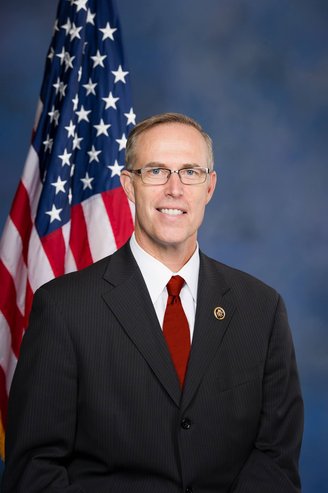Congress is back in session and passing a number of bills that range from funding for the Department of Defense to investing much-needed infrastructure money in the National Park system, among others. Humboldt’s congressional representative, Democrat Jared Huffman, voted on 28 different amendments and bills since Monday, July 20.
With that in mind, LoCO decided to look into how Huffman voted and to bring you, our dear and loyal readers, some of the details.

Courtesy of Jared Huffman’s office.
Probably the biggest piece of legislation passed this week was the National Defense Authorization Act. This bill is voted on each year and authorizes funds for the Pentagon. This bill authorized $732 billion in spending for the national defense in fiscal year 2021. Passing legislation is quite the sausage-making process, and attached onto this bill were requirements to rename military bases named after Confederate generals, to prohibit the displaying of the Confederate flag on military bases, to set up a committee to look into how climate will affect our “environmental security,” to prohibit funds being used in the Saudi-led war in Yemen and to prohibit funds from being used to build the border wall.
“As usual with the nation’s bloated defense budget, I have serious concerns that we’re spending too much on the Pentagon’s wish list when we have so many urgent needs at home,” Huffman said in a press release.
However, Huffman went on to vote in favor of the bill, but not before trying to reduce the authorized budget by 10 percent (this amendment failed) and attaching an amendment that will designates over 300,000 acres of forest as wilderness and labels about 480 miles of river as wild and scenic in Northwest California.
The NDAA ultimately went on to pass in the Senate, where the funding for the Dept. of Defense was increased to $741 billion. Trump vowed to veto the bill because of the renaming amendments, but the bill passed with a veto-proof majority.
The next big piece of legislation is the Great American Outdoors Act. This bill initially passed in the Senate back in June and was sent to the House for its approval before going to the president’s desk. This bill provides permanent funding for the National Park Service and the Land and Water Conservation Fund — a fund that brought nearly $3 million to Humboldt just last year. To date there is a $12 billion backlog in needed repairs for the NPS and over $20 billion in needed maintenance for all federal public lands.
“Last year, we permanently reauthorized the Land and Water Conservation Fund, and now by fully funding this program and addressing restoration needs in national parks and public lands, we are keeping that funding promise,” Huffman said in a press release. “Protecting and restoring public lands will generate jobs and revive the outdoor recreation economy that’s so important for communities throughout my district.”
The Great American Outdoors Act will provide about $6 billion for initial repairs and is expected to create around 100,000 jobs. The Act also will not be funded by tax dollars, but by 50 percent of all the royalties paid to the federal government from energy companies using federal lands. The Act passed was widely supported by folks on both sides of the political aisle.
To round out his week, Huffman announced his support for legislation that blocks the president from “deploying federal forces as a shadowy paramilitary against Americans.”
“What we have witnessed in Portland is a horrific display of the ‘secret police’ tactics that fascist regimes deploy,” Huffman said. “What President Trump is doing does not reflect the American democracy that we love, and it is clear that he and his enablers plan to take similar unconstitutional actions in cities around America in the lead up to the November 3 election. Congress must block this dangerous escalation and enforce the rule of law.”
The bill, titled the Preventing Authoritarian Policing Tactics on America’s Streets Act, has yet to be voted on, but if passed it will require agency identification on an officer’s uniform, limit federal crowd control tactics solely to federal property unless requested by that city’s mayor or governor and require disclosure of within 24 hours of how many federal officers were deployed and the purpose of the deployment.
CLARIFICATION: In a Facebook post, Congressman Huffman wanted to clarify the NDAA funding. He notes, “One important clarification: the NDAA vote does not actually “fund” the Pentagon, it sets a budgetary ceiling (which we tried, unsuccessfully, to reduce). The actual dollars get decided in the defense appropriations bill. I’ll be working with colleagues to keep those numbers well below the NDAA ceiling, and opposing the defense approps bill if the numbers remain bloated.
“It’s a confusing two-step that they don’t teach in civics class. But this is how the authorization/appropriation process works and why I felt it made sense this time to vote yes on one “defense bill” (i.e., to get the policy reforms) and probably no on the other (to oppose excessive defense spending).”
CLICK TO MANAGE